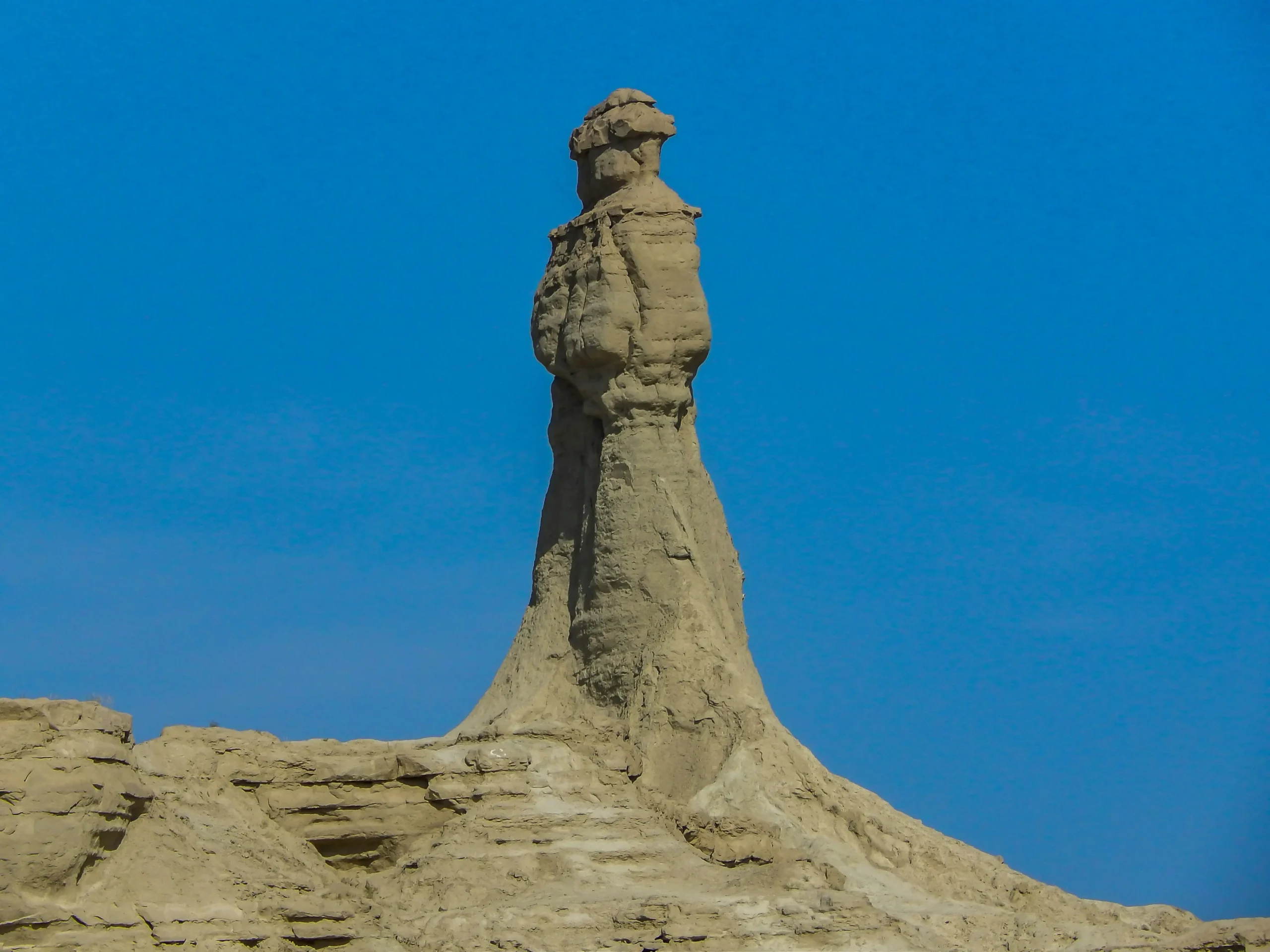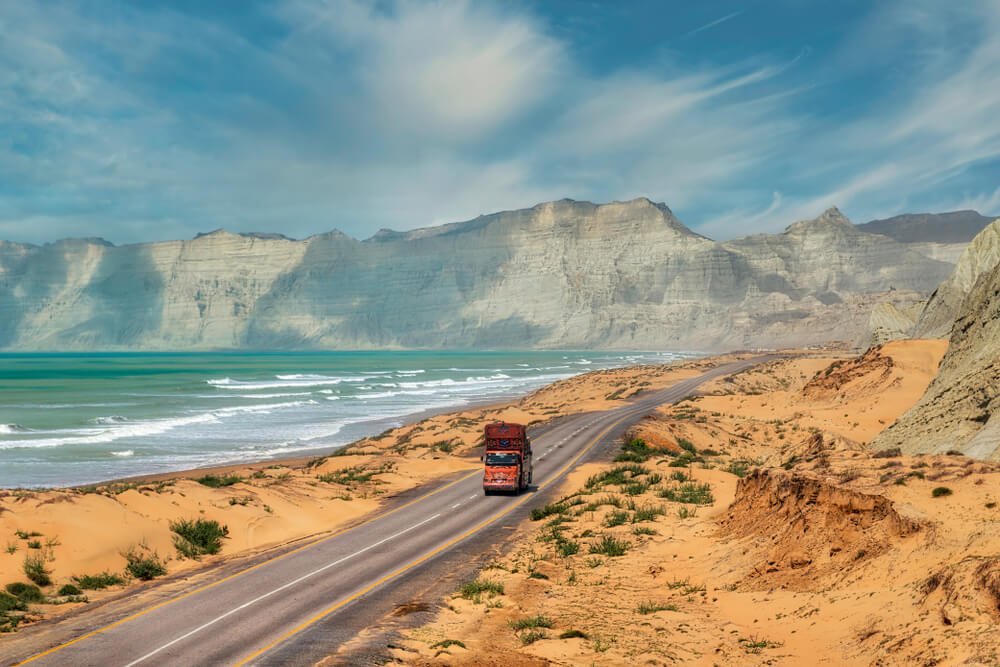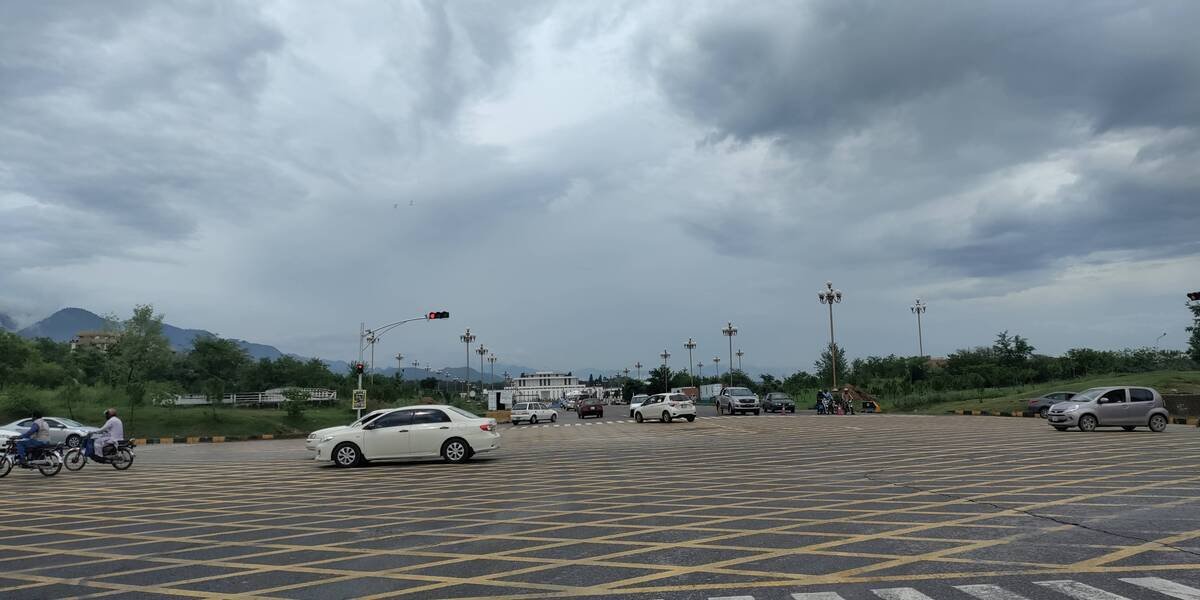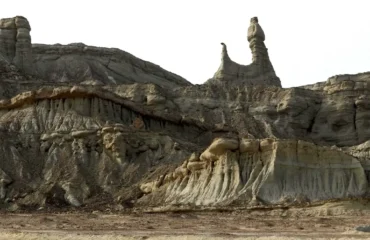Balochistan: The Land of Hidden Wonders
fromBalochistan is the largest province of Pakistan in terms of land area. Besides being blessed with abundant mineral resources, it also boasts incredible natural beauty. The province is adorned with numerous valleys teeming with wildlife and natural wonders, including mountains, plateaus, oases, deserts, and waterfalls.
-
Reviews 0 Reviews0/5
-
Vacation Style Holiday Type
-
Culture
-
-
Activity Level Easy
-
Group Size Medium Group
Balochistan is the largest province of Pakistan in terms of land area. Besides being blessed with abundant mineral resources, it also boasts incredible natural beauty. The province is adorned with numerous valleys teeming with wildlife and natural wonders, including mountains, plateaus, oases, deserts, and waterfalls.
Balochistan is home to several stunning destinations that showcase its natural splendor. Kanrach Valley, known as the land of waterfalls, captivates visitors with its cascading beauty. Hingol National Park offers a sanctuary for diverse flora and fauna. Moola Chotok, a hidden paradise, beckons adventurous souls to explore its treasures.
Kund Malir is just one of the many beaches with crystal-clear waters that grace the Makran Coastal Highway. Gadani Beach allures with its coastal charm, while Gwadar stands as a major trading port of Pakistan. Ziarat, a picturesque town, always fascinates visitors with its allure.
Bolan Pass, renowned as one of the most famous mountain passes in Pakistan, traverses the Toba Kakar range. Often referred to as the southern counterpart of the Khyber Pass, it served as a crucial trade route in the Indian subcontinent. Traders and nomadic tribes frequently used these passes as gateways to enter South Asia.
A trip to Balochistan is a perfect choice for nature enthusiasts and those seeking the rustic beauty of the region. Experience the wonders of this province and immerse yourself in its natural grandeur.
Trip Highlights:
Quetta- Ziarat- Gwadar- Astola Island- Hingol National Park
- Visit the historic Hanna Lake, located just outside the city
- Explore the city’s bazaars and try some local street food
- The scenic town in the mountains
- Visit the stunning Juniper Forest, one of the largest and oldest juniper forests in the world
- The Kharwari Baba shrine, a popular pilgrimage site
- The coastal town of Gwadar, known for its beautiful beaches and clear waters
- The Princess of Hope, a famous rock formation
- Visit the local fish market and try some fresh seafood
- Ride to the nearby Astola Island, a pristine and uninhabited island with clear waters and stunning views
- Enjoy snorkeling, swimming, and beachcombing on the island
- Hotel Accommodation based on double/twin sharing
- Meals (Breakfasts & Dinners)
- English speaking guide
- Air-conditioned transportation (depending on the size of the group throughout the trip
- Entrance Fee to the Archaeological sites and Museums
- Tips at hotels/restaurant
- Mineral water (1 bottle of 1.5 liter per pax per day)
- Porterage at hotels
- All items of personal nature such as telephone calls, mini bar and other Beverages
- Lunches
- Other than above mentioned
- Day use rooms if in case of flight delayed or cancellation
- Tips for Guide & Drivers
PASSPORT AND VISA
Participants of all nationalities must have a valid passport with six months remaining validity and a visa for Pakistan. Visa must be applied online at https://visa.nadra.gov.pk/.
The main category is CULTURE & HERITAGE TOURS, and the sub-category is GLIMPSE OF THE HERITAGE. You will need a letter of invitation (LOI) which our office will provide along with the requisite documents like a Discover Pakistan license copy and the National Identity Card of the issuing authority.
PLEASE MAKE SURE YOU HAVE THE CORRECT TRAVEL DOCUMENTS AND A VISA FOR PAKISTAN.
When visiting historical and archaeological sites in Pakistan, it is important to take certain precautions to ensure your safety and preserve the sites for future generations. Here are some precautions to remember:
Before visiting any site, research its historical significance, cultural practices, and any specific guidelines or restrictions. This will help you prepare and respect the site appropriately.
Dress modestly: Pakistan is a conservative country, so it is advisable to dress modestly, especially when visiting religious sites or conservative areas. Covering your shoulders, wearing long pants or skirts, and avoiding revealing or provocative clothing are respectful.
Respect local customs and traditions:
Pakistan has a rich cultural heritage, and it is important to respect the customs and traditions of the local communities. Follow any religious or cultural practices observed at the site, such as removing your shoes before entering certain areas or covering your head if required.
Follow the instructions and guidelines:
Pay attention to any instructions or guidelines provided by the site authorities or tour guides. These may include areas where photography is prohibited, restricted access zones, or any specific rules to protect the artifacts or structures.
Stay on designated paths:
Stick to designated paths and avoid trespassing or damaging any part of the site. Some archaeological sites are fragile; stepping on delicate areas can cause irreparable harm. Follow the signs and markers to ensure you are on the authorized path.
Do not remove artifacts:
Removing artifacts, stones, or historical items from the site is strictly prohibited. Removing artifacts not only damages their historical value but is also illegal. Respect the site’s archaeological significance by leaving everything as you found it.
Dispose of waste properly:
Maintain cleanliness and dispose of trash in designated bins. Keep the sites clean and leave no trace of your visit. Avoid littering or damaging the environment around the sites.
Be cautious of your belongings:
Keep an eye on your personal belongings at all times. Use a secure bag or backpack to carry your valuables and avoid displaying expensive items that may attract unwanted attention.
Stay hydrated and protect yourself from the sun:
Pakistan can have hot and dry weather, especially during summer. Drink plenty of water, wear sunscreen, and wear a hat or umbrella to protect yourself from the sun.
Follow safety guidelines:
Be aware of your surroundings and follow any safety guidelines provided by the authorities. It is always recommended to travel in groups, especially in remote areas, and inform someone about your plans and expected return time.
By following these precautions, you can ensure a safe and respectful visit to the historical and archaeological sites in Pakistan while appreciating their cultural and historical significance.
Weather
Pakistan has a diverse climate due to its geographical location and varying topography. The weather conditions in places with historical highlights can vary depending on the region and time of year. Here’s a general overview of the weather conditions in some popular historical destinations in Pakistan:
Lahore experiences hot summers with temperatures often exceeding 40°C (104°F) in June and July. Winters are mild, with temperatures ranging from 5°C to 20°C (41°F to 68°F). The best time to visit Lahore is in spring (March to April) and autumn (October to November) when the weather is pleasant.
Islamabad:
Islamabad has a moderate climate. Summers (May to September) are warm, with temperatures ranging from 25°C to 35°C (77°F to 95°F). Winters (December to February) can be cold, with temperatures dropping to around 0°C (32°F) or lower. The best time to visit Islamabad is during spring and autumn when the weather is pleasant.
Taxila:
Taxila, known for its archaeological sites, experiences similar weather conditions to Islamabad since it is located nearby. Summers can be hot, and winters are cold. The best time to visit Taxila is during spring and autumn.
Mohenjo-Daro:
Mohenjo-Daro, an ancient Indus Valley Civilization site, is in the Sindh province. The region has a hot desert climate. Summers (April to June) are sweltering, reaching over 45°C (113°F). Winters (December to February) are mild and pleasant, with temperatures ranging from 5°C to 20°C (41°F to 68°F). Visiting Mohenjo-daro during the winter months is advisable to avoid the extreme heat.
Multan is located in the Punjab province of Pakistan and experiences a semi-arid climate with hot and dry weather. Summers in Multan are sweltering, with temperatures often exceeding 45°C (113°F) in May and June. The city receives very little rainfall during this season. It is essential to stay hydrated and protect yourself from the intense heat if visiting during summer. The monsoon season occurs from July to September, providing some relief from the heat with moderate rainfall. Autumn is relatively pleasant, with temperatures ranging from 25°C to 35°C (77°F to 95°F), and the weather becomes drier. Winter in Multan is mild, with temperatures ranging from 10°C to 20°C (50°F to 68°F) during the day and cooler nights. Spring is short but pleasant, with temperatures ranging from 20°C to 30°C (68°F to 86°F) and vibrant blooming flowers. It is advisable to check the local weather forecast before visiting Multan and pack accordingly to ensure a comfortable and enjoyable trip.
What to bring:
Comfortable Clothing: Pakistan has diverse weather conditions, so it’s important to dress appropriately. Carry lightweight and breathable clothing for hot weather and layer up for cooler regions or winter visits. Modest clothing is recommended out of respect for local customs and traditions.
Sun Protection:
Pakistan’s climate can be quite sunny, especially during summer. Bring sunscreen, a hat, and sunglasses, and consider lightweight clothing that provides adequate sun protection.
Comfortable Shoes: Many historical and archaeological sites in Pakistan require walking and exploring on foot. Wear comfortable shoes or sneakers that are suitable for walking on uneven terrain.
Water and Snacks:
Carry a refillable water bottle to stay hydrated during your visit. It’s also a good idea to bring some snacks, especially if you plan to spend a significant amount of time at the site.
Insect Repellent:
Some archaeological sites in Pakistan may have mosquitoes or other insects, particularly in rural areas. Pack insect repellent to protect yourself from bites.
Cash and Local Currency:
While major cities in Pakistan have ATMs and card payment options, it’s advisable to carry some cash, especially when visiting remote areas where cash might be the primary mode of payment.
First Aid Kit:
It’s always a good idea to have a basic first aid kit with items like band-aids, antiseptic ointment, pain relievers, and any necessary prescription medications.
Camera and Binoculars: Capture the beauty of historical sites and landscapes with a camera or smartphone. Binoculars can be handy for observing details from a distance.
Guidebooks and Maps:
Consider bringing guidebooks or maps that provide information about the historical and archaeological sites you plan to visit. These resources can enhance your understanding and appreciation of the locations.
Respectful Behavior:
Show respect for local customs, traditions, and religious practices. It’s essential to dress modestly, ask for permission before taking photographs of people, and follow any rules or guidelines provided by site authorities.
Remember to research and plan your visit in advance, including opening hours, entrance fees, and any specific requirements or restrictions related to the historical and archaeological sites you wish to explore. Enjoy your journey through Pakistan’s rich history and cultural heritage!
BOOKING & DEPOSITS:
The trip can be reserved with an initial deposit of 30% at the time of booking. The initial deposit shall not be refunded but can be transferred for a future trip.
FINAL PAYMENT
We require the full cost of the trip to be paid 30 days prior to the start of the tour. Payments can only be made in cash or through bank transfers to our designated bank account. We do not accept payments via credit cards. Please ensure that you only accepted invoices generated by Discover Pakistan and sent through our official email ID.
1) Cancellations must be communicated in writing to Discover Pakistan or the agent through whom the trip was booked. Cancellation charges will be applied as follows:
Cancellation before 30 days or more: After deducting 30%, the remaining amount will be refunded. If the deposit is retained with the consent of our client, no cancellation charges will be applied. The full amount can be adjusted toward a future trip.
Cancellation within two weeks before departure: 50% of the package offer will be charged.
Cancellation within one week of departure or no-show: The full payment will be forfeited.
No refunds will be provided if you voluntarily or involuntarily leave the trip after it has started. Additionally, no refunds will be given for any unused meals, accommodation, or services.
2) There shall be no refunds if you leave the trip for any reason, voluntarily or involuntarily, after the trip begins. No refunds shall be made for any unused meals, accommodation, or services.
WHY BOOK WITH DISCOVER PAKISTAN?
Discover Pakistan is a leading Destination Management and Tour servicing company established to cater to the travel needs of explorers, researchers, mountaineers, and trekkers worldwide. We prioritize the safety, integrity, and comfort of all our valued clients without discrimination.
Our Values: We adhere to a set of values that guide our company in delivering the best travel experiences to our clients. These values include:
Integrity
Communication
Client Safety and Security
Customer-Oriented Services
Continuous Improvement
Customer Satisfaction
RESPONSIBILITY TOWARDS COMMUNITY
We recognize our responsibility towards the local communities, their customs, and the environment. Therefore, some of our income is dedicated to humanitarian activities, such as student support, skill development programs, and interest-free micro-credit loans for women. Detailed information can be provided upon request.
THE CLIENT
We have successfully collaborated with local and foreign clients, and we take pride in the long list of satisfied partners and individual clients that Discover Pakistan has served worldwide. We maintain a balance between cost and quality. Our business philosophy and the key to our success is “LESS PROFIT EQUALS MORE CLIENTS, AND MORE CLIENTS EQUALS MORE PROFIT.”
The tour starts in Karachi, where you will arrive on Day 1.
After arriving in Karachi, you will travel to Quetta, the capital city of Balochistan.
In Quetta, you can visit Hanna Lake, which offers beautiful views and recreational activities. Exploring the vibrant bazaars and trying local street food is also recommended.
Quetta is known for its delicious kebabs and sajji, a roasted lamb or chicken dish.
It is advisable to bring comfortable shoes, sunscreen, and plenty of water, as you will be doing a lot of walking and exploring.




